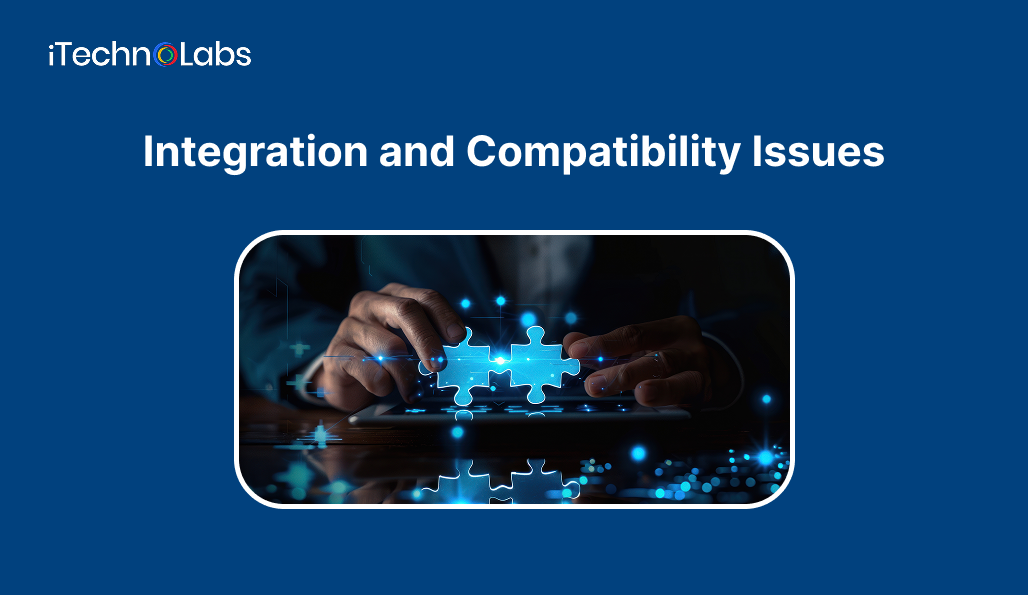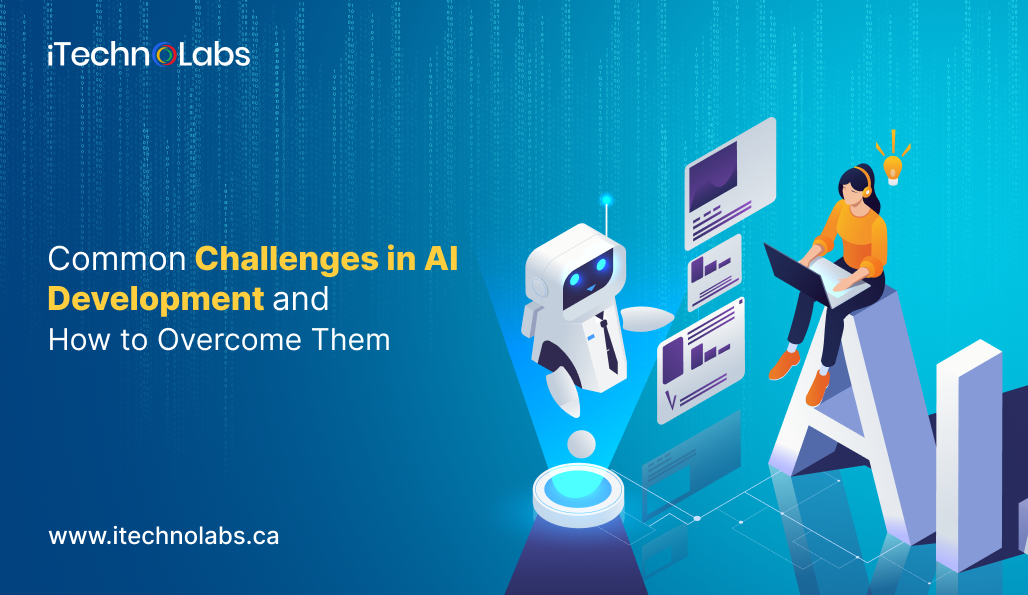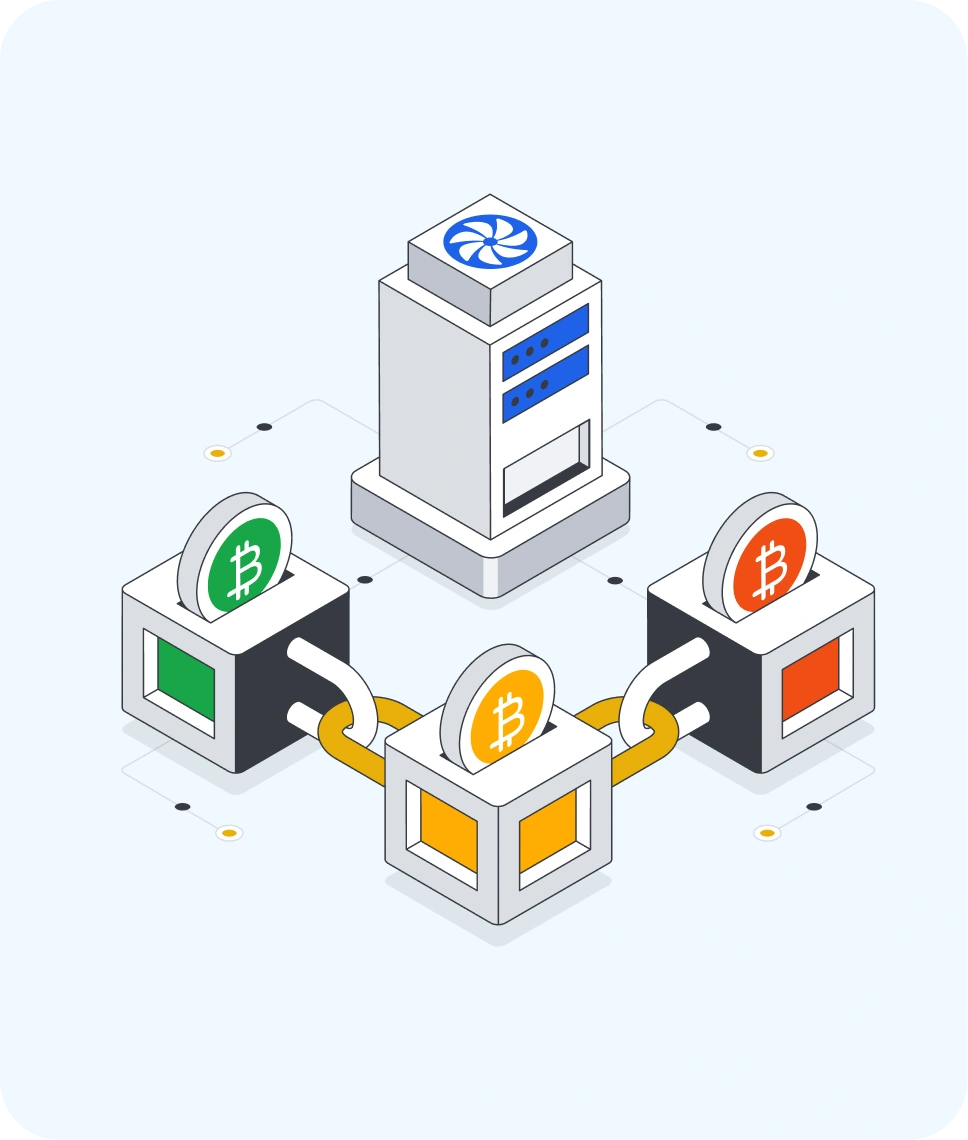AI is increasing worldwide at an unprecedented rate. The AI market is expected to reach a staggering $1.8 trillion by 2030. Every industry in the world is using it, especially when it comes to software development. The AI software development market is going to reach $2.83 billion by 2030. Every business is excited to implement AI models into their existing systems to boost teams’ productivity, save time & cost, improve customer satisfaction rate and much more.
However, just like any other technology AI also comes with its own set of challenges such as ethical issues, privacy concerns, data quality, compatibility issues. Any company which wants to integrate AI into their business processes must resolve these problems beforehand. Read this blog to learn about the AI development challenges and its solutions.
AI Development Challenges and Solutions
AI development is confronted by numerous challenges that need to be overcome by organizations to produce sustainable outcomes. From quality data problems and exorbitant computational expenses to talent shortages and ethical dilemmas, every challenge can affect progress as well as efficiency. Yet, these challenges open doors for innovating with intelligent solutions. With scalable infrastructure implementation, data governance, automation adoption, and investment in talent, organizations can effectively eliminate barriers. In addition, emphasizing ethical guidelines and regulatory adherence enhances trust. Both the challenges and their related solutions being understood enable organizations to construct AI systems that are secure, cost-effective, and able to generate long-term value.
1. Collecting and Managing Data Effectively
Without data there is no AI. Data is the foundation of AI development. The quality and quantity of data directly affects the quality of output generated by an AI model, tool or chatbot.
Therefore collecting and managing relevant data is important which is not a cake walk at all. This is because millions of terabytes of data is produced every year and everything of that is not useful.
Solution: Organizations should use multiple sources to collect data and not just a single one. Using multiple sources will help organizations to get reliable and unbiased data. It is necessary to ensure that data comply with regulations like GDPR, or CCPA as applicable. The data must be reviewed and updated regularly to keep up with the legislation.
2. Data Quality and Biasness
Just collecting the data is not enough as another AI development challenge is to maintain the quality of data and ensure its fully reliable. It is essential to make sure that the data is not biased, does not contain any errors and has diversity. This is a much bigger problem for sectors like healthcare, finance, and recruitment where any wrong AI decisions can lead to ethical issues.
Solution: To improve data quality there are many steps organisations can follow such as data cleaning, augmentation, and normalization. There are many bias detection tools one can use to detect unfair patterns in the data. Moreover, businesses should take data from a variety of sources rather than relying on a single one so that the AI model learns from a diverse data set.
3. High Costs and Resource Consumption

AI development is not as simple as building a regular app. It involves a lot of resources in terms of money and infrastructure which makes it a costly affair.
A great example is DeepMind’s AlphaGo which was designed to defeat the world champions in the game Go. The training of this model alone cost $35 million. Heavy investments like development, training, GPUs, and cloud based resources are required when developing an AI model which is a critical AI development challenge.
Solution: The cost of a development can easily be utilized by considering the following pointers:
- Outsource smartly: You can consider contacting an AI expert or hiring an AI development company which can develop a model according to your business requirements at low cost.
- Focus on high-impact projects: Prioritize the AI projects which deliver the best ROI.
- Save on resources: To avoid heavy infrastructure costs, use cloud-based AI tools.
Suggested article: Top AI Development Tools and Frameworks Every Business Should Know
4. AI Models Complexity
AI models tend to include millions or even billions of parameters, which make them very complex and resource-dense. Such complexity adds costs to training, delays deployment, and renders models hard to explain. Very intricate models also tend to overfit data and therefore are less accurate in real situations. Debugging and fine-tuning these models is also tough for teams since small errors create enormous performance gaps.
The lack of transparency also complicates the decision-making process, especially in highly regulated industries. As a result, organizations cannot balance accuracy and usability, scalability, and interpretability while developing and refining sophisticated AI systems.
Solution: The key is to follow strategies that eliminate redundant complexity without losing accuracy. Methods such as model pruning, knowledge distillation, and parameter quantization are able to make models simpler, lighter, and faster. Using pre-trained models and transfer learning also decrease training needs while enhancing performance.
Explainable AI (XAI) solutions improve transparency, allowing teams to comprehend model decisions and gain trust. Modular architectures also simplify debugging and scaling. Cloud-based AI services further minimize infrastructure loads, providing scalable resources. By concentrating on lean, interpretable, and resource-economical models, organizations are better able to overcome complexity while maintaining accuracy and usability in AI deployments.
5. Ethical Concerns
Another common AI development challenge is the ethical issues. As discussed earlier the quality of an AI model is only as good as the data one feeds into it. When the data is inaccurate, the AI model could lead to unethical outcomes and mislead the user.
Solution: To address this issue, organizations should implement ethical AI guidelines to ensure the data is fair, accountable, and transparent. Additionally, conducting regular AI audits and bias testing can help to eliminate any potential risks before deployment. Additionally, businesses should onboard AI governance teams to ensure AI models comply with industry regulations.
6. Dependence on External Platforms
The next AI development challenge faced by companies is the dependence on external platforms. Many organizations use external AI platforms to use AI into their existing apps. While this provides benefits, it also comes with its own set of problems. The external AI platforms do not allow for room for customization and might not be that much flexible to meet your business needs. Further, organizations may become overly reliant on a single third party service.
Solution: The best way to handle this issue is to choose the platform that meets your business needs. You must evaluate all the options before long-term commitment. Moreover, you should also keep an eye on the changes third-party services make in terms of service, pricing, and platform capabilities.
7. Integration and Compatibility Issues

Integrating artificial intelligence into your existing system or software is much more complicated than just a normal plugin into your browser. This is a critical AI development challenge for many organizations.
For example: There is an AI model that improves diagnosis accuracy and is thus effective for treatment. This can save millions of lives every year but integrating it with electronic medical records (EMR) might be challenging. That’s because EMR systems are quite old and hospitals might face problems while integrating AI into it.
Solution: To tackle this challenge businesses should make an integration blueprint. One should analyze their IT environment and detect if there are any fundamental issues. Moreover organisations can use middleware solutions that enable AI models to integrate with legacy systems.
8. Talent Shortage
AI development is not a child’s play and requires technical expertise. Specialized skills like natural language processing, machine learning, deep learning, and algorithms are required to develop an AI model, chatbot or agent. Finding developers who have the technical knowledge of AI can be challenging for organizations. The shortage of skilled professionals also leads to an increase in their salaries. Otherwise organizations have to train their existing staff which is also a costly affair.
Solution: Shortage of qualified professionals may delay the projects. However, organisations can consider falling pointers to mitigate this AI development challenge:
- Train existing team: Provide the necessary tools and resources to your existing staff and make them skilled in AI technologies.
- Partner with AI specialists: Collaborate with an AI specialist or AI development company to get access to an experienced team of AI experts.
- Invest in AI education: Support AI education by conducting certification programs and build a skilled workforce within your company.
9. Lack of Transparency
Another AI development challenge organisations often face is lack of transparency and explainability in AI models. In many cases AI models act as black boxes where they provide certain types of outcomes without any reasoning. Such unexplanability may lead to distrust especially when the AI is used in regulated sectors or when its decision can affect the lives of people. It is important for users to be aware of how AI makes its conclusions accountable. This lack of transparency may lead to reputation loss, compliance problems, and poor adoption levels.
Solution: To solve this problem organisations should use explainable AI methods to make model’s output more interpretable. They should record the decision making process and provide users with detailed explanations of AI-generated predictions. Businesses must be transparent about feature selection, data sources, and training procedures.
10. Data Privacy and Security
AI models process vast amounts of sensitive information making them a simple target for cyber criminals. Unauthorised access to AI-facilitated insights can cause financial and reputational loss. This is particularly important in fields such as blockchain and finance. Malicious methods can simply abuse these models and use them to disclose information that needs to be kept confidential.
Solution: Organizations must make their AI models abide by data rules such as GDPR or CCPA. Further the companies must adopt robust encryption methods, secure data sharing interfaces, and access control policies. Further organizations can begin small and then expand the data limit over a course of time. Finally, prior to transmitting data to an AI model, anonymization of the input must be done and details such as name, email id, phone number, and others must be stripped off.
Also, read: AI Development Cost Breakdown: What Businesses Need to Budget For
Conclusion
Adopting AI is a must to survive and thrive in this hyper-competitive world. However, there are many AI development challenges organizations have to face when integrating this advanced technology into their old processes. The most common issues faced while implementing AI are data privacy, security, complexity of the AI model, ethical issues, compatibility issues, lack of transparency and more.
It is only after resolving these issues that any organisation can fully implement AI into their systems. To do this you can hire an AI development company, which will take care of all these issues and provide you with an AI model that matches your business needs and requirements. iTechnolabs is a 9-year-old AI development company with 230+ members and 840+ projects delivered successfully.
FAQs
1. What are some challenges faced in AI development?
The most common challenges faced in a development are data collection, data quality, privacy & security, AI models complexity, ethical issues, dependence on external platforms, integration and compatibility issues. Resolving these issues as soon as possible is essential so that the AI models can be used effectively and efficiently at a large scale.
2. What is the biggest AI challenge?
The biggest challenge for any organisation in the world is to collect relevant data as the data is the core of any AI model. When the data is not accurate and reliable the AI will produce unfair and biased results which can mislead the users and affect people’s lives.
3. What are the three types of problems in AI?
AI problems can be broadly categorized into three types: Search and Optimization Problems, where the system finds the best or most efficient solution among many possibilities; Knowledge and Reasoning Problems, which involve representing facts, making inferences, and solving logical queries; and Learning and Adaptation Problems, where AI systems use data to improve performance over time. These categories cover tasks like pathfinding, decision-making, and predictive modeling, forming the foundation of modern AI applications across industries.










